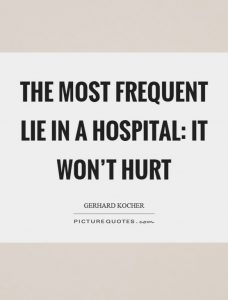《自律養生實踐家之旅326》 另一種極權

在我的生活中,時常出現這樣的對話:
「你吃飯了嗎?」
「還沒。」
「都這麼晚了,還沒吃?」
當我接著回應:「我今天整天都還沒吃呢!」對方往往會露出驚訝的神情說:「這怎麼可以?會生病的啊!」
如果我再補上一句:「我昨天也沒吃哦。」他們大概就會問我要不要去看醫生了。
有時我會說:「我已經五天沒進食了。」甚至是:「算一算,已經兩週沒吃東西了。」這樣的話一出口,總會被不熟識的人視為異類,彷彿我成了這個社會裡的「瘋子」。
經驗告訴我,他們會因此對斷食產生興趣嗎?答案是不會。
我們對於「極權統治」有既定印象:那是剝奪言論與人權的暴政體制。但若從「身體的立場」來看,我們對自己的身體其實長期施行著一種無聲的極權,我們從不給身體表達意見的自由。
如果身體能說話,聽見我說:「你這樣吃才會生病。」它大概會感到興奮,因為終於有機會被聽見、被理解,那是它爭取自由的曙光。
極權統治,並非遠在天邊。它無所不在,潛伏在你我日常之中。
「一天三餐」是一種制度化的極權教育;「生病看醫生」則是一種根深蒂固的醫療威權。
「三餐」的規定看似理所當然,實則粗暴的一體適用。有人一餐抵別人三餐,有人三餐吃得毫無負擔,有人一餐就已把身體逼到崩潰邊緣。
而「生病」的定義也模糊不清:有人喉嚨痛就當自己病了,有人腹瀉就慌張求醫,有人經期不規律就視為身體出事了。
這些混淆與恐慌,其實都是因為我們從未真正傾聽過自己的身體。
民間營養學的教條,和主流醫療的權威形象,都從未真正站在「身體的立場」上說話。因為我們不了解身體的潛能,便對它無限索求,日復一日的壓榨它的修復力與忍耐力。
極權國家會壓制人民的言論自由,醫療體制亦然,它壓抑了「身體意見」的表達空間。
雖生活在文明社會中,人們卻在人際互動中不斷複製、傳播那些「無關身體本質」的健康觀。身體無法發聲,只能默默承擔。
醫療體系創造出一種與身體真相日漸疏離的極權世界,藥物、疫苗與非必要手術,這些對人體造成高度傷害的手段,卻成了我們習以為常、不得不依賴的求生依靠。
許多醫療從業者其實內心能感受到這股極權的壓力,因為他們的良知會在某些瞬間敲醒他們的意識,特別是在他們宣稱「只有這條路能走」的時候。
當健保制度被極力讚頌時,我感受到的不是福祉,而是「皇上萬歲」的單一話語權,彷彿所有人都在無意中協助宣傳一條離開身體的道路。
每當有醫生公開為疫苗背書,我內心就更沉痛。因為我知道,這社會有些機構從不反省、從不認錯。這不是極權,那什麼才是?
多數人不會主動挖掘那些全球藥品被下架的真相,否則早會發現無數駭人的醜聞:有多少無辜的生命被犧牲?又有多少黑心操作被默許、被掩蓋?
在西方社會,至少還能見到民間團體對藥廠提出指控,而在我們的社會裡,這樣的聲音幾乎被掩埋。不是選擇啞忍,就是無力對抗房間裡的那頭大象。
「你若靠不了解一件事來賺錢,就永遠不會真正理解那件事。」這句出自辛克萊(Upton Sinclair)的話一旦被無限放大,看到對一個謊言全面投降的極權世界。
在極權世界裡,政府與人民之間從不存在真正的「將心比心」,若有,也僅限於民間私下的交流。
所謂「推心置腹」,是尊重對方的不同選擇與立場,是允許彼此擁有異見。但我們日常所受的三餐制約,從未有機會被認真討論,因為主流的「專業人士」早已排拒斷食,導致身體的聲音無法被廣泛溝通與理解。
這種對身體觀點的壓抑,已不只是個人問題,而是一場集體災難。人類對自己身體的無知與輕視程度,正好呼應了極權政府對人民的冷漠與操控。
「推心置腹」這四個字,本意是距離很近、彼此坦誠的互動,但我們與自己的身體,卻常處在彼此隔絕的狀態。
同住一個屋簷下的兩個存在,竟被強迫無法對話,這難道不是極權才會發生的場景?
飲食文明與醫療文明,共同編寫了一齣限制人體自由的劇碼。而唯有熟練斷食的人,才能真正尊重身體、理解身體、信任身體。
唯有親身經歷過斷食的旅程,才具備看穿醫療極權的眼光與勇氣。
(醫院裡最常見的謊言是:「這不會痛(有傷害)。」)
Another Form of Totalitarianism
This kind of conversation often occurs in my daily life:
“Have you eaten yet?”
“Not yet.”
“It’s already this late and you haven’t eaten?”
When I reply, “I haven’t eaten anything all day,” the other person usually reacts with surprise and says, “How can that be? You’ll get sick!”
If I add, “I didn’t eat yesterday either,” they’ll likely suggest I see a doctor.
Sometimes I say, “I haven’t eaten for five days,” or even, “It’s been about two weeks since my last meal.” Whenever I say things like this, people who don’t know me well often treat me like a social outcast, as if I were some kind of lunatic.
But based on experience, do they become interested in fasting? The answer is no.
We tend to associate totalitarianism with oppressive regimes that strip people of their freedom and rights. But if we look at it from the perspective of the body, we’ve actually been imposing a form of silent totalitarianism on ourselves for a long time—we deny our body the freedom to speak for itself.
If the body could speak, and it heard me say, “It’s eating like this that’s making you sick,” it would probably feel excited. That would mean it finally has a chance to be heard and understood—finally, a glimpse of freedom.
Totalitarian control isn’t just a political metaphor—it is embedded in our daily lives.
Eating three meals a day is a form of institutionalized control. “Go see a doctor when you’re sick” is a deeply ingrained form of medical authoritarianism.
The “three meals a day” rule seems like common sense, but in reality, it’s an indiscriminate and rigid demand. Some people eat one meal that equals three meals for others. Some can handle three meals without issue. Others fall apart physically with just one.
The definition of “being sick” is also unclear. A sore throat? Illness. Diarrhea? Illness. Irregular periods? Also illness.
This confusion and anxiety arise because we’ve never truly listened to our bodies.
The dogmas of mainstream nutrition and the authority of conventional medicine have never truly spoken from the body’s perspective. Because we don’t understand our body’s potential, we make endless demands on it, draining its power to repair and endure—day after day.
Just as totalitarian regimes suppress free speech, the medical system suppresses the body’s voice.
We may live in a so-called “civilized” society, but in our everyday interactions, we continuously replicate and spread health beliefs that ignore the body’s essence. The body has no voice—it simply endures in silence.
Medicine has created a totalitarian world that drifts further from the truth of the body. Drugs, vaccines, and unnecessary surgeries—despite the harm they inflict—have become normalized tools for survival.
Many healthcare professionals, deep down, feel the weight of this totalitarianism. Their conscience occasionally stirs, especially when they insist, “This is the only path.”
Whenever the national health insurance system is praised, I don’t feel gratitude—I feel the chilling dominance of a system where only one voice is allowed. It’s as if we’re all unknowingly helping to promote a road that leads us further away from our bodies.
Every time a doctor publicly endorses vaccines, my heart grows heavier. Because I know—some institutions in our society never reflect, never apologize.
If that isn’t totalitarianism, what is?
Most people won’t take the time to dig into the truth behind globally withdrawn pharmaceuticals. Otherwise, they’d uncover a long list of horrifying scandals: How many innocent lives have been lost? How many cruel actions were silently condoned or covered up?
In Western societies, there are at least civil groups willing to take legal action against pharmaceutical companies. In my own society, such voices are nearly nonexistent. People either stay silent out of resignation or feel powerless in the face of the elephant in the room.
“When a man’s salary depends on his not understanding something, he will never understand it.”
This quote from Upton Sinclair, when magnified, describes a world where totalitarian control is maintained through complete submission to lies.
In a totalitarian world, the idea of “mutual empathy” between government and people simply doesn’t exist—at most, it’s found in private exchanges between individuals.
True empathy lies in the willingness to care sincerely, to respect differing views, and to allow disagreement to exist.
But the three-meals-a-day constraint we face has never even been up for discussion. Mainstream “experts” have long dismissed fasting, leaving the body’s voice ignored, disconnected, and unable to be shared.
This suppression of the body’s perspective is not just a personal issue—it’s a collective disaster.
Humanity’s ignorance and disregard for its own body reflects the same cold detachment that totalitarian governments display toward their people.
“Heart-to-heart” communication, by definition, implies closeness and sincerity. Yet we are often estranged from our own bodies.
Two beings living under the same roof, forbidden to speak to one another—if that isn’t the hallmark of totalitarianism, then what is?
The combined systems of dietary and medical “civilization” have scripted a play that restricts the body’s freedom.
Only those who have practiced fasting can truly respect, understand, and trust the body.
And only through firsthand experience with fasting can one develop the clarity and courage to see through the authoritarianism of modern medicine.


